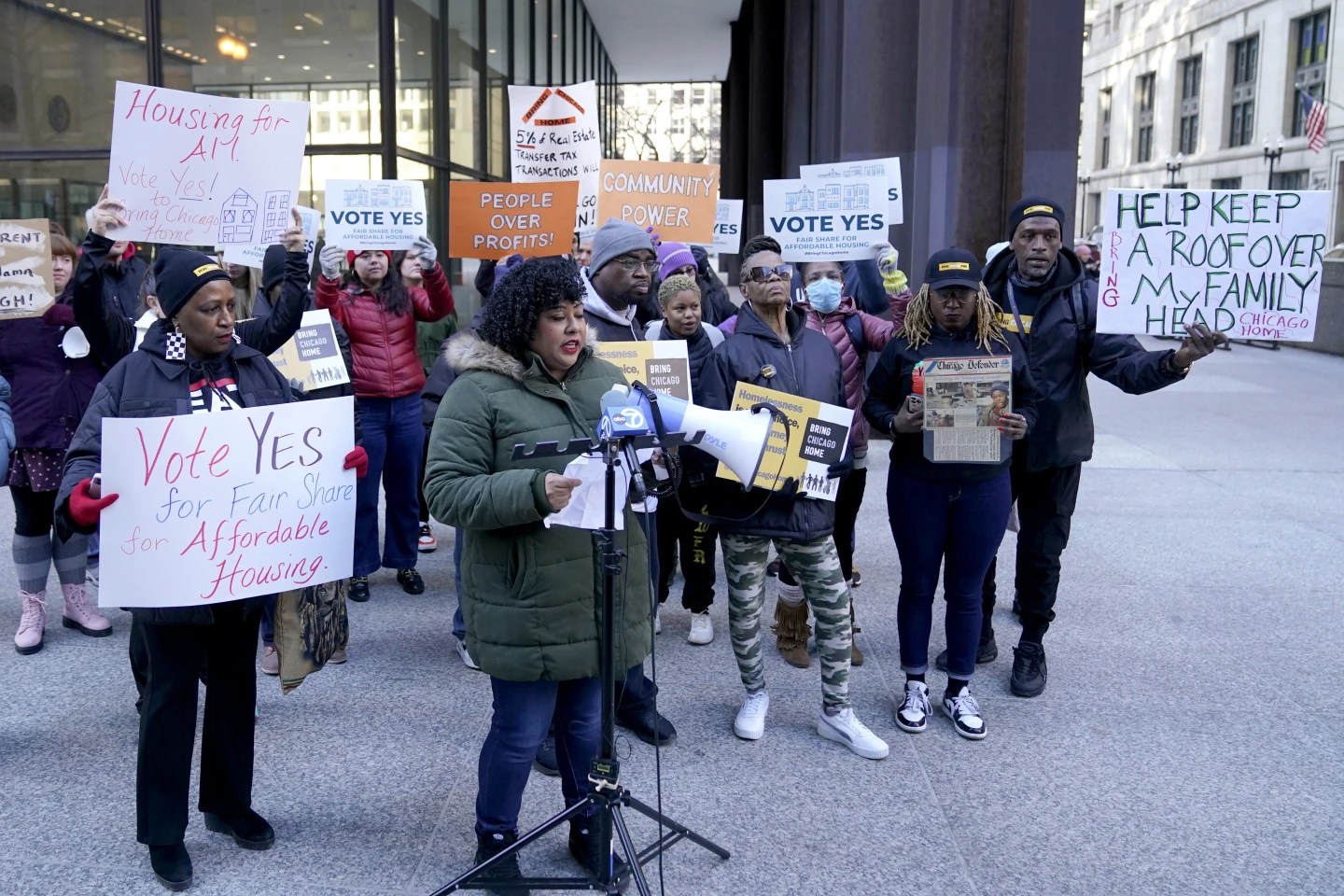CHICAGO (AP) — An unusual legal challenge may upend the future of a Chicago ballot measure that would hike a real estate tax on high-end property sales to fund services for homeless people.
Such citywide ballot measures are rare in the nation’s third-largest city, but other cities, including Los Angeles, have approved similar so-called “mansion taxes.”
A Cook County judge last month rejected the measure, but backers of the effort, called Bring Chicago Home, hope it will be overturned.
Early voting for the March 19 primary in Chicago has already started, so the measure remains on the ballot as it’s being settled in the courts.
Here’s a closer look at the ballot measure and the issues surrounding it.
The referendum
The referendum asks Chicago voters to support an increase on a transfer tax for properties over $1 million. It’s a one-time buyer’s fee.
Chicago’s rate is currently 0.75% on all property sales. The proposal overhauls the tax structure: 2% for properties over $1 million, 3% on properties over $1.5 million and down to 0.6% on properties under $1 million.
Most Chicago property sales are under $1 million, so the majority of home buyers will pay less. Analysis by the proponents shows roughly 95% of homebuyers would see a decrease.
The Chicago area’s median sales price is roughly $350,000, according to the National Association of Realtors. A buyer would currently pay $2,625 to the city. That would drop to $2,100 under the new structure.
Also, it’s a marginal tax, meaning the increased rate applies to only the portion above $1 million. For example, on a $1.2 million property, $1 million would be taxed at 0.6% with the remaining at 2%. Currently, the buyer pays $9,000, which would jump to $10,000.
The revenue
Backers of Bring Chicago Home estimate the change will generate $100 million annually. It will be set aside solely for homeless services, including mental health care and job…
Read the full article here



